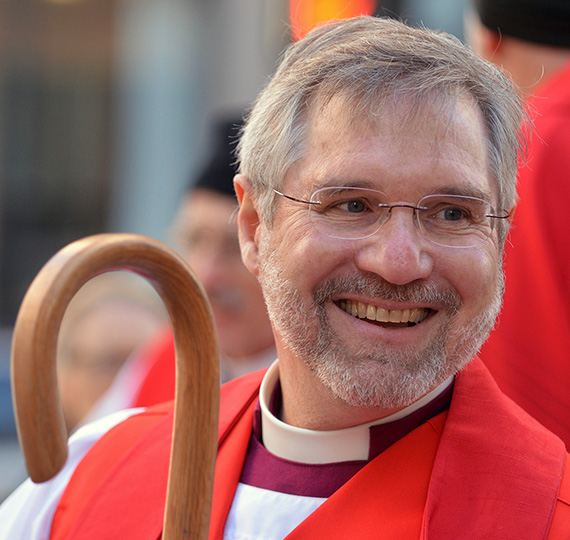It is very clear that the realities of the COVID pandemic have radically upset the regular patterns of life in the church as we have known them. While we are no way near the end of the pandemic, it is good to ponder what the Body of Christ might look like in the “new missional age” post pandemic.
Living on the cusp between the church that was and the Body of Christ that is becoming, it is useful to define first what the contours of the church and world have been even as they evolve into something very different.
For most of the 20th century and into the pre-pandemic 21st century (what I have identified as the waning years of Christendom) the focus for much of our lives as Episcopalian Christians was the church as an institution. An ecclesiocentric world view held sway putting the church at the center of our lives and where keeping church programs and activities going was the prime imperative. This church was a product of the industrial age where the accumulation of goods and resources, based upon an economy of scarcity, reigned. Interchange between individuals was primarily transactional and the end to be achieved was growth. The icon of this 20th century Episcopal Church is the canonically required annual Parochial Report with its measures of membership: average Sunday attendance, number of services held, pledging units, and investments. Yet in the face of COVID many of these metrics have become anachronistic as we have had to learn to gather in new and different ways.
In the new missional age, an age informed by the realities of a global pandemic, the focus is shifting from the church as an institution to a new engagement of what the living God in Jesus through the power of the Holy Spirit is up to in our daily lives and in the wider world. The story of God’s redeeming love from creation to the end of time becomes our prime narrative. Focusing on God’s purposes, God’s mission, helps to recenter our lives as followers of Jesus. We are being called to move from an ecclesiocentric preoccupation with the church to a missiocentric focus on God’s action, God’s mission, in our neighborhoods.
The terrain in which we are called to be faithful to God’s mission is defined by the digital age where information access and electronic communication rule our lives. In this new world, personal transformation is valued over the accumulation of goods. Sharing of resources networked through social media results in a new economy of abundance where transportation, housing, and manifold other goods and services are shared — think Uber, Lyft and Airbnb. This new age is fundamentally relational and connection to others, including the use of new digital platforms, is a prime value. Who hasn’t learned to connect in new ways via Zoom or some other video platform since March 2020?
This new missional age thus invites us to reconceive the fundamental nature of a parish. In the Episcopal Church in Connecticut we have been playing with new understandings of a parish, even before COVID forced us to do so:
1. A parish is a community of theological imagination, where our hearts and minds are moved by God’s presence in our lives, our neighborhoods, and the world.
2. A parish is a community fed by word and sacrament, where our stories connect with God’s story in Holy Scripture, and where we experience God’s grace in baptism and Eucharist. Here is where the ministry of altar guilds facilitating gathering of the faithful in new ways offers great promise and possibility.
3. A parish is a community forming disciples and apostles in God’s mission where people grow as followers of Jesus and are sent by the Holy Spirit into the world to join God’s work of restoration and reconciliation.
4. Finally, a parish in this new missional age is connected to the wider body of Christ by sharing our lives with companions in Christ across the Episcopal Church and the wider church.
This working definition of what a parish is in this new missional age keeps the mission of God at the center of our life together. It appreciates that in this digital world, the faithful are seeking transformation through God’s abundant love, resulting in more genuine relationships and deeper connection to God and one another Christ. The upset and upheaval caused by COVID-19 invite us to be the Body of Christ that God needs us to be in order to offer healing, wholeness and restoration to a world so much in need of such Good News.
The Rt. Rev. Ian T. Douglas, Ph.D., Bishop Diocesan Episcopal Church in Connecticut, Province I

